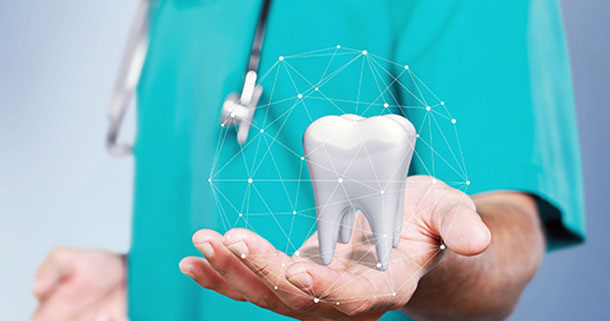Why Choose Telliant’s EHR and EMR Software Development Services
We are a leading EMR and EHR software development services company, specializing in creating innovative and scalable solutions that enable healthcare providers to seamlessly share, manage, and secure patient health records, enhancing the overall quality of care.

Enhanced Interoperability
Our experts ensure seamless integration and communication across all systems, including lab tests, radiology, pharmacy, and external healthcare providers, for a unified patient care experience.

Advanced Customization
As EHR software developers, we create solutions with customizable features and functionality that are intuitive, easy to integrate, and designed to simplify workflows while maintaining a user-friendly interface

Clinical Management
We develop EHR and EMR software that adheres to industry standards and Clinical Management requirements, including HIPAA, ISO/IEC 27701:2019, and GDPR, to ensure the utmost security and protection of patient health records.

Decision Support
Integrating advanced, data-driven features that empower healthcare professionals to make more accurate, informed decisions by providing real-time insights and actionable recommendations based on comprehensive patient data.

Data Security
Our EMR developers implement robust data security measures, including multi-factor authentication and data encryption, to safeguard patient information, protect against cybersecurity threats, and prevent data breaches or unauthorized access.
Healthcare EHR EMR App Development Resources
Our healthcare EHR/EMR software development resources provide in-depth expertise. Whether you’re starting from scratch or looking to enhance existing systems, we offer technical know-how and industry experience to bring your vision to life.
FAQ’s for EHR Software Development Services
The time required to develop feature updates for a healthtech application depends on factors such as feature complexity, regulatory requirements, integration needs, and testing rigor. Here’s a general breakdown of average timelines for different types of feature updates:
- Small Feature Updates (1–4 weeks): UI/UX improvements, Minor API enhancements, bug fixes and performance optimizations, and small workflow automation enhancements.
- Medium Complexity Features (4–12 weeks): Adding telehealth or video conferencing capabilities, enhancing patient portals with new dashboards, expanding, EHR/EMR integrations, implementing basic AI-driven analytics, secure messaging and notifications.
- Large Feature Enhancements (3–6 months): Developing new interoperability capabilities, AI-powered clinical decision support tools, implementing blockchain for data security and audit trails, Advanced data analytics and predictive modelling, multi-system integrations with external healthcare platforms.
- Highly Complex, Regulatory-Driven Features (6–12+ months): FDA-regulated AI/ML models for diagnostics, comprehensive EHR integration across multiple providers, HIPAA/GDPR-compliant data architecture overhauls, enterprise-grade patient engagement platforms.
Factors That Can Impact Development Time:
- Regulatory approvals & compliance (HIPAA, FDA, GDPR).
- Third-party API integrations (EHR, insurance, pharmacy networks).
- Scalability & performance testing (handling high patient loads).
- Security reviews & penetration testing (data protection).
We have over 12 years of experience working with Healthtech software applications.
An Electronic Health Record (EHR) is a comprehensive, interoperable digital record of a patient’s medical history, accessible across multiple healthcare providers and organizations. It supports data sharing for coordinated care. An Electronic Medical Record (EMR) is a digitized version of a patient’s chart used within a single healthcare practice or facility. It is primarily for internal use and not designed for sharing outside the organization.
Programming Languages
Python- Java – C#/.NET – JavaScript (React, Angular, Vue.js, Node.js) – Swift & Kotlin .
Databases & Data Storage
SQL Databases (PostgreSQL, MySQL, Microsoft SQL Server, Oracle) – NoSQL Databases (MongoDB, Firebase, DynamoDB) – FHIR Servers (Google Cloud Healthcare API, Microsoft Azure FHIR, HAPI FHIR)
Healthcare Standards & Interoperability
FHIR (Fast Healthcare Interoperability Resources) – HL7 (Health Level Seven) – DICOM (Digital Imaging and Communications in Medicine) – ICD-10 & SNOMED CT.
Security & Compliance
Encryption (AES-256, TLS 1.3, HSMs- Identity & Access Management) (OAuth 2.0, OpenID Connect, SAML, Okta, Keycloak) – HIPAA/GDPR Compliance Tools (AWS Shield, Azure Security Center).
Integration & Middleware
Mirth Connect – Redox, MuleSoft – Kafka, RabbitMQ.
AI, Machine Learning & Analytics
TensorFlow, PyTorch, Scikit-learn – Apache Spark, Hadoop – Tableau, Power BI.
































 Patient Management
Patient Management Clinical Management
Clinical Management Billing and Coding
Billing and Coding Analytics and Reporting
Analytics and Reporting Data Security
Data Security Care Digitization
Care Digitization










